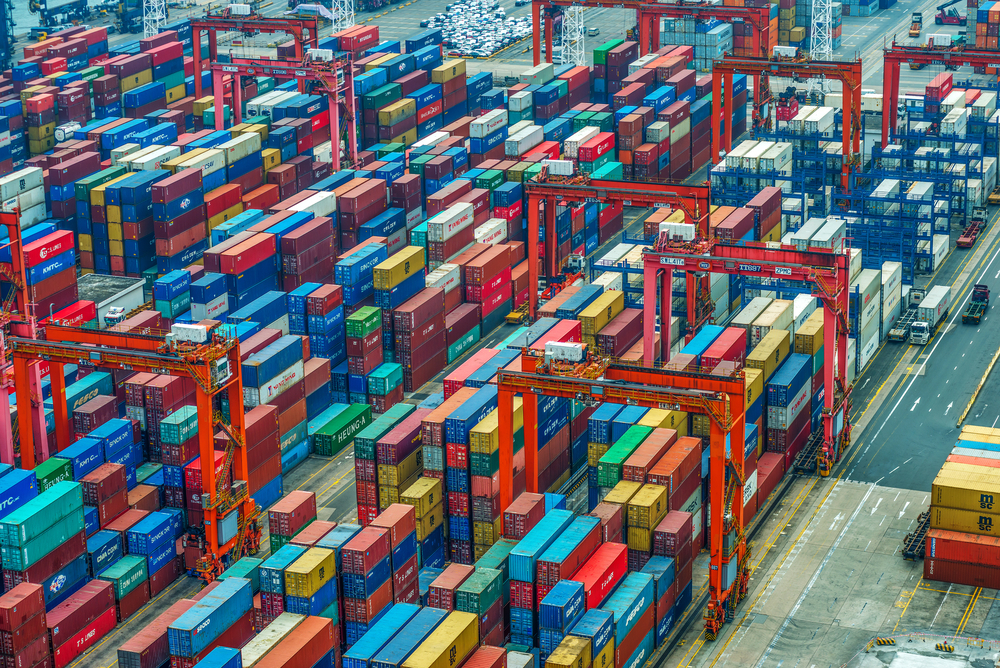-
中国
-
意大利
The Effects of Coronavirus on the International Supply Chain
7 3 月 2020
- 国际贸易
Summary – When can the Coronavirus emergency be invoked as a Force Majeure event to avoid contractual liability and compensation for damages? What are the effects on the international supply chain when a Chinese company fails to fulfill its obligations to supply or purchase raw materials, components, or products? What behaviors should foreign entrepreneurs adopt to limit the risks deriving from the interruption of supplies or purchases in the supply chain?
Topics covered
- The impact of Coronavirus (Covid-19) on the international Supply chain
- What is Force Majeure?
- The Force Majeure Contract Clause
- What is Hardship?
- Is the Coronavirus a Force Majeure or Hardship event?
- What is the event reported by the Supplier?
- Did the Supplier provide evidence of Force Majeure?
- Does the contract establish a Force Majeure or Hardship clause?
- What does the law applicable to the Contract establish?
- How to limit supply chain risks?
The impact of Coronavirus (Covid-19) on the international Supply chain
Coronavirus/Covid 19 has created terrible health and social emergencies in China, which have made exceptional measures of public order necessary for the containment of the virus, like quarantines, travel bans, the suspension of public and private events, and the closure of industrial plants, offices and commercial activities for a certain period of time.
Once the reopening of the plants was authorized, the return to normality was strongly slowed because many workers, who had traveled to other regions in China for the Lunar New Year holiday, did not return to their workplaces.
The current data on the reopening of the factories and the number of staff present are not unambiguous, and it is legitimate to doubt their reliability; therefore, it is not possible to predict when the emergency can be defined as having ended, or if and how Chinese companies will be able to fill the delays and production gaps that have been created.
Certainly, it is very probable that, in the coming months, foreign entrepreneurs will see their Chinese counterparts pleading the impossibility of fulfilling their contracts, with Coronavirus as the reason.
To understand the size of the problem, just consider that in the month of February 2020 alone, the China Council for the Promotion of International Trade (the Chinese Chamber of Commerce that is tasked with promoting international commerce) at the request of Chinese companies, has already issued 3,325 certificates attesting to the impossibility of fulfilling contractual obligations due to the Coronavirus epidemic, for a total value of more than 270 billion yuan (US $38.4 bn), according to the official Xinhua News Agency.

What risks does this situation pose for foreign entrepreneurs, and what consequences can it have beyond Chinese borders?
There are many risks, and the potential damages are enormous: China is the world’s factory, and it currently generates roughly 15% of the world’s GDP. Therefore, it is unlikely that a production chain in any industrial sector does not involve one or more Chinese companies as suppliers of raw materials, semi-finished materials, or components (in the case of Italy, the sectors most integrated with supply chains in China are the automotive, chemical, pharmaceutical, textile, electronic, and machinery sectors).
Failure to fulfill on the part of the Chinese may, therefore, result in a cascade of non-fulfillments of foreign entrepreneurs towards their end clients or towards the next link in the supply chain.
The fact that the virus is spreading rapidly (at the moment of publication of this article the situation is already critical in some regions in Italy (and in South Korea and Iran), and cases are beginning to be flagged in the USA) furthermore, makes it possible that production stops and quarantine situations similar to those described could also be adopted in regions and industrial sectors of other countries.
To simplify this picture, let us consider the case of a Chinese supplier (Party A) that supplies a component or performs a service for a foreign company (Party B), which in turn assembles (in China or abroad) the components into a semi-finished or final product, that is then resold to third parties (Party C).

If Party A is late or unable to deliver their product or service to Party B, they risk finding themselves exposed to risks of contract failure versus Party C, and so on along the supply/purchase chain.
Let’s examine how to handle the case in which Party A communicates that it has become impossible to fulfill the contract for reasons related to the Coronavirus emergency, such as in the case of an administrative measure to close the plant, the lack of staff in the factory on reopening, the impossibility of obtaining certain raw materials or components, the blocking of certain logistics services, etc.
In international trade, this situation, i.e. exemption from liability for non-fulfillment of contractual performance, which has become impossible due to events that have occurred outside the sphere of control of the Party, is generally defined as “Force Majeure”.
To understand when it is legitimate for a supplier to invoke the impossibility to fulfill a contract due to the Coronavirus and when instead these actions are unfounded or specious, we must ask ourselves when can Party A invoke Force Majeure and what can Party B do to limit damages and avoid being considered in-breach towards Party C.
What is Force Majeure?
At an international level, a unified concept of Force Majeure doesn’t exist because every different country has established their own specific regulations.
A useful reference is given by the 1980 Vienna Convention on Contracts for the International Sale of Goods (CISG), ratified by 93 countries (among which are Italy, China, the USA, Germany, France, Spain, Australia, Japan, and Mexico) and automatically applicable to sales between companies with seat in contracting states.
Art. 79 of CISG, titled, “Impediment Excusing Party from Damages”, provides that, “A party is not liable for a failure to perform any of his obligations if he proves that the failure was due to an impediment beyond his control and that he could not reasonably be expected to have taken the impediment into account at the time of the conclusion of the contract or to have avoided or overcome it or its consequences.”
The characteristics of the cause of exemption from liability for non-fulfillment are, therefore, its unpredictability, the fact that it is beyond the control of the Party, and the impossibility of taking reasonable steps to avoid or overcome it.
In order to establish, in concrete terms, if the conditions for a Force Majeure event exist, what its consequences are, and how the parties should conduct themselves, it is first necessary to analyze the content of the Force Majeure clause (if any) included in the contract.
The Force Majeure Contract Clause
The model Force Majeure clause used for reference in international commerce is the one prepared by the International Chamber of Commerce, la ICC Force Majeure Clause 2003, which provides the requirements that the party invoking force majeure has the burden of proving (in substance they are those provided by art. 79 of CISG), and it indicates a series of events in which these requirements are presumed to occur (including situations of war, embargoes, acts of terrorism, piracy, natural disasters, general strikes, measures of the authorities).
The ICC Force Majeure Clause 2003 also indicates how the party who invokes the event should behave:
- Give prompt notice to the other parties of the impediment;
- In the case in which the impediment will be temporary, promptly communicate to the other parties the end;
- In the event that the impossibility of the performance derives from the non-fulfillment of a third party (as in the case of a subcontractor) provide proof that the conditions of the Force Majeure also apply to the third supplier;
- In the event that this shall lead to the loss of interest in the service, promptly communicate the decision to terminate the contract;
- In the event of termination of the contract, return any service received or an amount of equivalent value.
Given that the parties are free to include in the contract the ICC Force Majeure Clause 2003 or another clause of different content, in the face of a notification of a Force Majeure event, it will, therefore, be necessary, first of all, to analyze what the contractual clause envisages in that specific case.
The second step (or the first, if, in the contract, there is no Force Majeure clause) would then be to verify what the law applicable to the contractual agreement provides (which we will deal with later).
It is also possible that the event indicated by the defaulting party does not lead to the impossibility of the fulfillment of the contract, but makes it excessively burdensome: in this case, you cannot apply Force Majeure, but the assumptions of the so-called Hardship clause could be used.
What is Hardship?
Hardship is another clause that often occurs in international contracts: it regulates the cases in which, after the conclusion of the contract, the performance of one of the parties becomes excessively burdensome or complicated due to events that have occurred, independent of the will of the party.
The outcome of a Hardship event is that of a strong imbalance of the contract in favor of one party. Some textbook examples would be: an unpredictable sharp rise in the price of a raw material, the imposition of duties on the import of a certain product, or the oscillation of the currency beyond a certain range agreed between the parties.
Unlike Force Majeure, in the case of Hardship, performance is still feasible, but it has become excessively onerous.
In this case, the model clause is also that of the ICC Hardship Clause 2003, which provides that Hardship exists if the excessive cost is a consequence of an event outside the party’s reasonable sphere of control, which could not be taken into consideration before the conclusion of the agreement, and whose consequences cannot be reasonably managed.
The ICC Hardship clause stabilizes what happens after a party has proven the existence of a Hardship event, namely:
- The obligation of the parties, within a reasonable time period, to negotiate an alternative solution to mitigate the effects of the event and bring the agreement into balance (extension of delivery times, renegotiation of the price, etc.);
- The termination of the contract, in the event that the parties are unable to reach an alternative agreement to mitigate the effects of the Hardship.
Also, when one of the parties invokes a Hardship event, just as we saw before for Force Majeure, it is necessary to verify if the event has been planned in the contract, what the contents of the clause are, and/or what is established by the norms applicable to the contract.
Is the Coronavirus a Force Majeure or Hardship event?
Let’s return to the case we examined at the beginning of the article, and try to see how to manage a case where a supplier internal to an international supply chain defaults when the Coronavirus emergency is invoked as a cause of exemption from liability.
Let’s start by adding that there is no one response valid in all cases, as it is necessary to examine the facts, the contractual agreements between the parties, and the law applicable to the contract. What we can do is indicate the method that can be used in these cases, that is responding to the following questions:
- The factual situation: what is the event reported by the Supplier?
- Has the party invoking Force Majeure proven that the requirements exist?
- What does the Contract (and/or the General Conditions of Contract) provide for?
- What does the law applicable to the Contract establish?
- What are the consequences on the obligations of the Parties?
What is the event reported by the Supplier?
As seen, the situation of force majeure exists if, after the conclusion of the contract, the performance becomes impossible due to unforeseeable events beyond the control of the obligated party, the consequences of which cannot be overcome with a reasonable effort.
The first check to be complete is whether the event for which the party invokes the Force Majeure was outside the control of the Party and whether it makes performance of the contract impossible (and not just more complex or expensive) without the Party being able to remedy it.
Let’s look at an example: in the contract, it is expected that Party A must deliver a product to Party B or carry out a service within a certain mandatory deadline (i.e. a non-extendable, non-waivable), after which Party B would no longer be interested in receiving the performance (think, for example, of the delivery of some materials necessary for the construction of an infrastructure for the Olympics).
If delivery is not possible because Party A’s factory was closed due to administrative measures, or because their personnel cannot travel to Party B to complete the installation service, it could be included in the Force Majeure case list.
If instead the service of Party A remains possible (for example with the shipping of products from a different factory in another Chinese region or in another country), and can be completed even if it would be done under more expensive conditions, Force Majeure could not be invoked, and it should be verified whether the event creates the prerequisites for Hardship, with the relative consequences.
Did the Supplier provide evidence of Force Majeure?
The next step is to determine if the Supplier/Party A has provided proof of the events that are prerequisites of Force Majeure. Namely, not being able to have avoided the situation, nor having a reasonable possibility of remedying it.
To that end, the mere production of a CCPIT certificate attesting the impossibility of fulfilling contractual obligations, for the reasons explained above, cannot be considered sufficient to prove the effective existence, in the specific case, of a Force Majeure situation.
The verification of the facts put forward and the related evidence is particularly important because, in the event that a cause for exemption by Party A is believed to exist, this evidence can then be used by Party B to document, in turn, the impossibility of fulfilling their obligations towards Party C, and so on down the supply chain.

Does the contract establish a Force Majeure or Hardship clause?
The next step is that of seeing if the contract between the parties, or the general terms and conditions of sale or purchase (if they exist and are applicable), establish a Force Majeure and/or Hardship clause.
If yes, it is necessary to verify if the event reported by the Party invoking Force Majeure falls within those provided for in the contractual clause.
For example, if the reported event was the closure of the factory by order of the authorities and the contractual clause was the ICC Force Majeure Clause 2003, it could be argued that the event falls within those indicated in point 3 [d] or “act of authority” … compliance with any law or governmental order, rule, regulation or direction, curfew restriction” or in point 3 [e] “epidemic” or 3 [g] “general labor disturbance”.
It should then be examined what consequences are provided for in the Clause: generally, responsibility for timely notification of the event is expected, that the party is exempt from performing the service for the duration of the Force Majeure event, and finally, a maximum term of suspension of the obligation, after which, the parties can communicate the termination of the contract.
If the event does not fall among those provided for in the Force Majeure clause, or if there is no such clause in the contract, it should be verified whether a Hardship clause exists and whether the event can be attributed to that prevision.
Finally, it is still necessary to verify what is established by the law applicable to the contract.
What does the law applicable to the Contract establish?
The last step is to verify what the laws applicable to the contract provide, both in the case when the event falls under a Force Majeure or Hardship clause, and when this clause is not present or does not include the event.
The requirements and consequences of Force Majeure or Hardship can be regulated very differently according to the applicable laws.
If Party A and Party B were both based in China, the law of the People’s Republic of China would apply to the sales contract, and the possibility of successfully invoking Force Majeure would have to be assessed by applying these rules.
If instead, Party B were based in Italy, in most cases, the 1980 Vienna Convention on Contracts for the International Sale of Goods would apply to the sales contract (and as previously seen, art.79 “Impediment Excusing Party from Damages”). As far as what is not covered by CISG, the law indicated by the parties in the contract (or in the absence identified by the mechanisms of private international law) would apply.
Similar reasoning should be applied when determining which law are applicable to the contract between Party B and Party C, and what this law provides for, and so on down the international supply chain.
No problems are posed when the various relationships are regulated by the same legislation (for example, the CISG), but as is likely the case, if the applicable laws were different, the situation becomes much more complicated. This is because the same event could be considered a cause for exemption from contractual liability for Party A to Party B, but not in the next step of the supply chain, from Party B to Party C, and so on.
How to limit supply chain risks?
The best way to limit the risk of claims for damages from other companies in the supply chain is to request timely confirmation from your Supplier of their willingness to perform the contractual services according to the established terms, and then to share that information with the other companies that are part of the supply chain.
In the case of non-fulfillment motivated by the Coronavirus emergency, it is essential to verify whether the reported event falls among those that may be a cause of contractual exemption from liability and to require the supplier to provide the relevant evidence. The proof, if it confirms the impossibility of the supplier’s performance, can be used by the buyer, in turn, to invoke Force Majeure towards other companies in the Supply Chain.
If there are Force Majeure/Hardship clauses in the contracts, it would be necessary to examine what they establish in terms of notice of the impossibility to perform, term of suspension of the obligation, consequences of termination of the contract, as well as what the laws applicable to the contracts provide.
Finally, it is important to remember that most laws establish a responsibility of the non-defaulting party to mitigate damages deriving from the possible non-fulfillment of the other party. This means that if it is probable, or just possible, that the Chinese Supplier will default on a delivery, the purchasing party would then have to do everything possible to remedy it, and in any case, fulfill their obligations towards the other companies that form part of the supply chain; for example by obtaining the product from other suppliers even at greater expense.


























